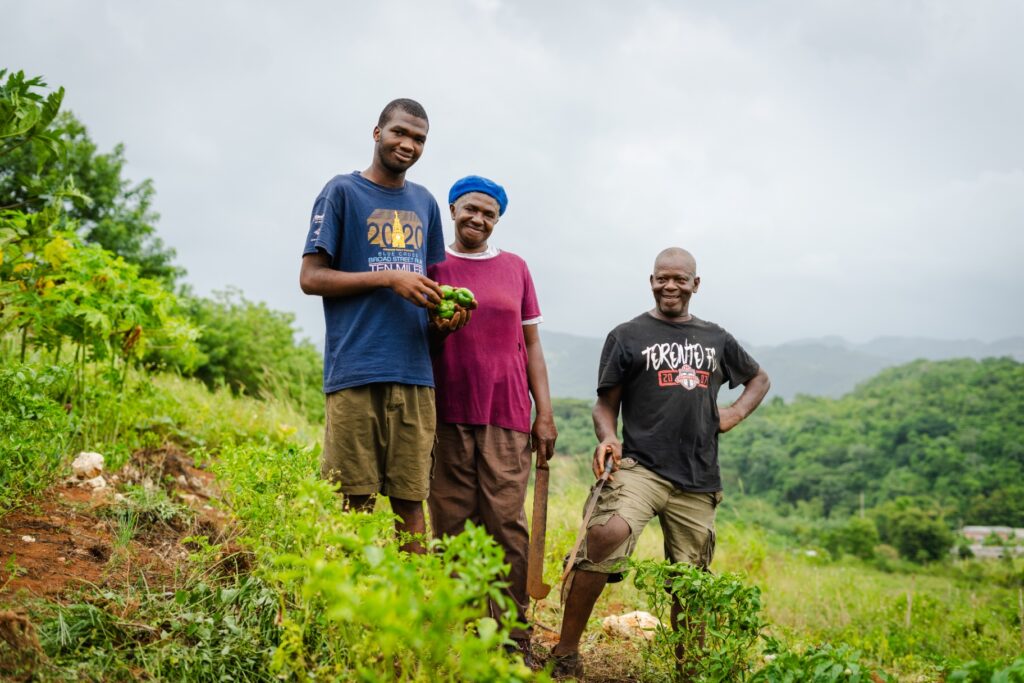In a significant move to strengthen the Caribbean agriculture sector, FAO recently engaged around 30 government representatives from Grenada, St Kitts and Nevis, St Lucia, and St Vincent and the Grenadines to discuss agricultural land access policies and explore ways to improve the implementation of agricultural land bank initiatives. This two-day workshop, held from April 8-9, 2025, sought to examine effective agricultural land management and enhance gender equity in land access.
Land banks have been used globally for decades as a tool for improving access to agricultural land, particularly underutilized or idle plots. In the Caribbean, the concept is gradually gaining traction, offering farmers secure access to land that could increase agricultural productivity. During the workshop, representatives from the participating countries shared their experiences with land bank projects in their respective regions. FAO facilitated the discussions to highlight best practices, challenges, and strategies for improving land bank implementation across the Caribbean.
Grenada’s Ministry of Agriculture emphasized the importance of land access for improving food security and reducing the country’s reliance on food imports. The country’s Permanent Secretary, Isaac Bhagwan, outlined efforts to enhance land access for farmers as part of a broader regional agenda to reduce food imports by 25% by 2025, now extended to 2030. Similarly, St Kitts and Nevis shared its focus on unlocking dormant land resources to support equitable and sustainable agricultural growth. Both countries acknowledged the role of land banks in unlocking agricultural potential and emphasized the importance of workshops like this to exchange knowledge and refine strategies.
FAO’s Land Tenure Officer, Amparo Cerrato Gevawer, emphasized the role of land banks in promoting inclusivity in the agriculture sector, particularly for marginalized groups such as women and youth. She noted that ensuring equitable land access can support national, regional, and global agendas, including the Sustainable Development Goals (SDGs), and help foster a more resilient regional food future. The FAO presented its lessons learned from supporting land bank initiatives over the past eight years and discussed how land banks can be a useful policy tool to enhance food security in the Caribbean.
Throughout the workshop, participants from Grenada, St Lucia, St Kitts and Nevis, and St Vincent and the Grenadines shared challenges and lessons learned in implementing land bank projects. Common obstacles included limited availability of arable land, fragmented land ownership, and insufficient infrastructure such as roads to accessible farmlands. The discussions highlighted the need for comprehensive legislative actions to address land tenure and access issues, advocacy for land banks, and better public awareness campaigns. Additionally, the countries agreed on the necessity of strengthening land bank management by ensuring adequate human resources and fostering greater accountability in their implementation.
By the conclusion of the workshop, the participants agreed on key recommendations to ensure the success of land bank initiatives. These included the need for land bank programs to be country-driven, with government support and commitment from policymakers. Land banks should be flexible, adaptable to each country’s specific needs, and have effective management of public land to encourage private landowner participation. FAO also emphasized that strengthening land banks required collaboration with other sectors, such as agricultural training, technical capacity building, value chain development, and access to markets.
Looking ahead, FAO plans to continue supporting land bank initiatives in these countries by introducing National Land Banks Information Systems to help manage land availability and streamline the land application process. FAO will also work with each country to develop tailored action plans based on the workshop discussions, aiming for better land bank implementation and support for agricultural development.

